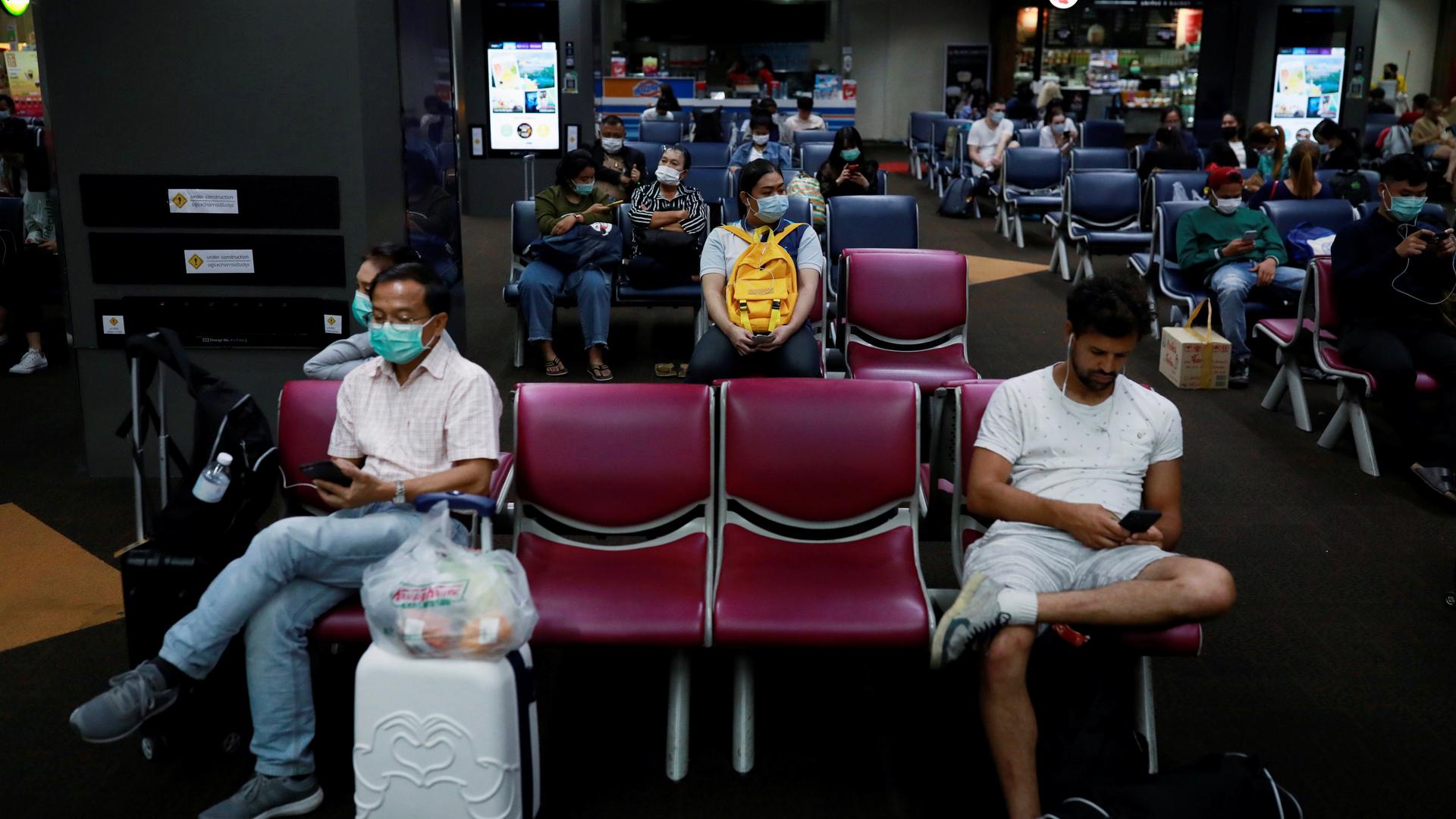The person you’re most likely to get the coronavirus from is yourself. More specifically: your hands. Think of them as sponges, soaking up viruses and bacteria. When you touch your face, you get that in your eyes and mouth. Still, researchers say we touch our faces several times a minute. Turns out, there’s a likely reason why.
“Social anxiety,” said psychologist Kevin Chapman, director of the Kentucky Center for Anxiety and Related Disorders. He said people touch their faces to signal to others that they’re self-aware and to comfort themselves. But it’s not actually good for us. “It can be self-soothing, but it also can backfire, and make strong emotions worse, long term.”
Related: Travel restrictions could slow coronavirus spread, but they are ‘not enough alone’
Like any good, bad habit, it’s hard to stop. Just telling people to stop touching their faces won’t work, Chapman said.
“Having a more flexible thought related to face touching, such as waking up and saying something along the lines of ‘I will be more aware of touching my face today’ is a much more flexible way, less punitive way to extinguish that behavior,” he suggested, along with smartphone reminders and toys to occupy your hands.
Some people have been able to do it.
“I haven’t touched my face in weeks,” President Donald Trump said on March 4. “I miss it.”
Others struggle. Even Singapore’s Minister of Health Gan Kim Yong.
Related: ‘Die, bacteria, die’: Mexican nurses croon in hand-washing PSA video
“Even at a meeting we have on this ministry task force, while I was speaking, I was touching my face,” he recalled that day, Feb. 4. “Until Minister Lawrence Wong nudged me with his elbow and said ‘stop touching your face.’”
It is possible that people in some cultures might have an easier time stopping than others. Wladimir Alonso, a pandemic researcher with the University of São Paulo, has examined face-touching habits in Brazil and the US. And he said he hasn’t observed a big difference — everyone seems to do it, almost constantly. But he said some cultures are more touch-oriented, in general, than others.
“Mediterranean people they like to greet each other very warmly, so, I think that until we have a crisis going on, people keep doing that — saying hello and kissing and hugging and all of that,” he said.
Italy’s special commissioner for COVID-19 has suggested Italians need to tone down their warm culture. France’s health minister went further — advising people to stop greeting each other with kisses. On March 2, when German Chancellor Angela Merkel swept into a meeting and offered her hand for a shake to the German interior minister, he waved her away. Normally, that would be rude. These days, it gets a laugh.
Related: As Italy’s students rejoice over school closures, families worry about the economic toll
Online videos demonstrate other alternatives to handshaking like touching feet or bumping elbows. Israel Prime Minister Benjamin Netanyahu said people should take a cue from India, and greet each other by putting their palms together and saying “namaste.”
Alonso said that’s good advice, but people should remember, they’re still touching lots of surfaces that other people have touched. So, he said the best we can hope for, for now, is just to get people thinking about what they do with their hands.
“If we can change some habits that we have, that will be fine,” Alonso said. “It’s going to help.”
He said it might mean we’ll be a little more prepared when the next big pandemic sweeps the globe.
To listen to the full story, click the audio player above.
